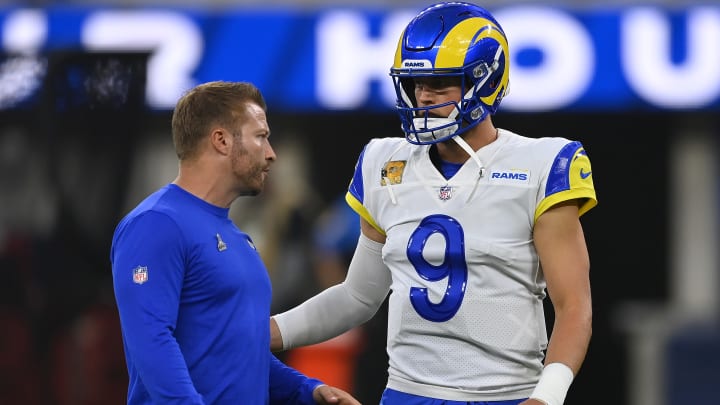
NFL teams have 53 players and twice as many coaches, trainers, and support staff, but to win a Super Bowl you must have two things: an elite quarterback and a superlative coach. The Rams won the Super Bowl last week, with veteran quarterback Matthew Stafford at the helm. This past season was the first year Stafford played for the Rams, after playing most of his career with the Detroit Lions. The Lions are arguably the worst franchise in the NFL. Stafford has always been considered one of the most talented quarterbacks in the league, but never won a playoff game with Detroit. Because of revenue sharing and salary caps, the NFL has more parity than other professional sports. Therefore, the talent gap between teams is not that great. So why does it seem like the same teams are always on the hunt for a championship, and the same teams are usually on the bottom? It comes down to leadership. Leadership in the front office, but mostly leadership with the head coach and the quarterback. The Rams head coach, Sean McVay is one of the youngest and the most successful coaches in the league. He became the Rams head coach when he was 32 years old. He is so widely respected, that in four short years, four of his assistants have been hired by other teams as head coaches including the Chargers 39-year-old head coach Brandon Staley.
Football teams need a lot of things to be successful. They need good offensive and defensive lines, solid special teams play and strong athletes in the skill positions, but exceptional play in all those positions won’t win a championship without elite leadership at the top. Football provides us with an interesting metaphor for business and life. Strong leadership is not only an asset but is imperative to win at any level. A couple of weeks ago, I wrote about leadership and what in my opinion it requires to be a great leader. Some leaders are born, but most are made. The Sean McVay example also shows us that one of the things great leaders do well is grooming and producing other great leaders. Great leaders don’t pontificate; they mentor, coach, and develop talent. They build winning teams and they leave a legacy.
What if Donald Trump’s greatest strength is something the rest of us refuse to acknowledge? In this thought-provoking episode, Gary Acosta explores what liberals, global leaders, and entrepreneurs might learn from Trump’s approach to leadership. From mastering direct communication to shaping loyalty through perceived authenticity, Gary dives into the mechanics of modern influence—even when the messenger is flawed. Whether you agree or disagree with Trump, the lessons here reveal surprising truths about power, persuasion, and strategy in today’s world.
What do people really mean when they say, “DEI is destroying our country”? In this powerful episode, Gary Acosta takes on the backlash against Diversity, Equity, and Inclusion—and asks whether it’s become a coded way to express racism. He breaks down myths about lowered standards, exposes the hypocrisy behind legacy admissions, and challenges the silence around nepotism and privilege. DEI may be a polarizing term today, but Gary argues that its core values remain essential to capitalism, innovation, and fairness in America’s future.
The Latino brand impacts every aspect of our lives—from how we're viewed in business and media to the opportunities we’re given. In this first episode, Gary Acosta explores why a unified, empowered narrative is essential for Latino prosperity. Learn what Gary shared at the United Nations, how he raised $100M for Latino-led ventures, and why changing the perception of our community is the key to unlocking capital, influence, and success.
